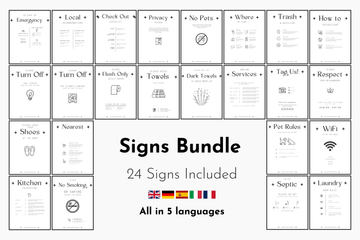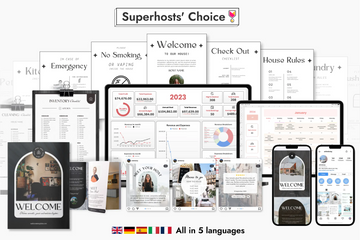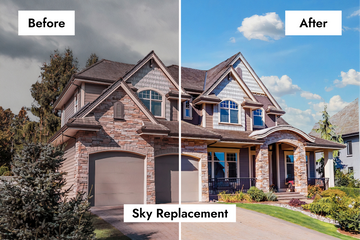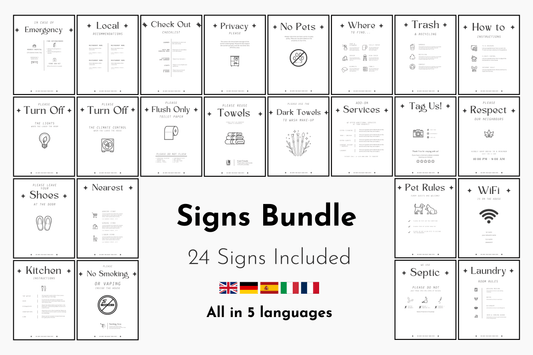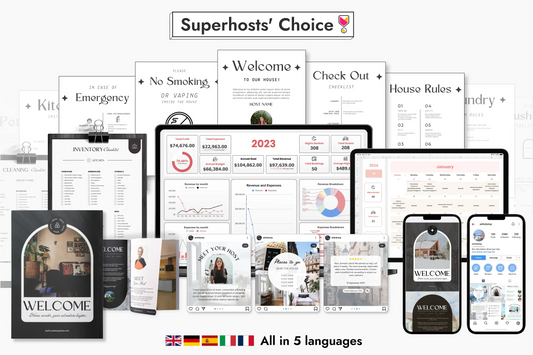In recent years, Airbnb has evolved beyond just accommodation by offering unique experiences to guests. One trend that has gained popularity is the hosting of virtual events, allowing guests from around the world to connect with hosts, explore new cultures, learn new skills, and engage in interactive activities—all from the comfort of their homes.
For Airbnb hosts, offering virtual events presents a great opportunity to diversify revenue streams, attract a broader audience, and provide a more immersive experience for guests. Here’s a guide to successfully hosting virtual events on Airbnb.
Why Host Virtual Events on Airbnb?
1. Expand Your Audience
Virtual events remove geographical barriers, allowing you to reach a global audience. Guests who may never have the chance to stay at your property can now participate in your unique experiences from anywhere in the world. Whether it's a cooking class, a cultural tour, or an art workshop, virtual events allow you to engage with guests without the limitations of location.
2. Create an Additional Revenue Stream
By offering virtual events, you can generate income independently of your physical Airbnb property. Virtual experiences, unlike physical stays, have no capacity limits beyond what your online platform can handle. This means you can host multiple guests at the same time and potentially increase your earnings.
3. Provide a Unique Guest Experience
Virtual events give you the opportunity to offer something beyond traditional lodging. If you’re passionate about a certain hobby, culture, or skill, hosting a virtual event is a great way to share it with others. These experiences can also act as a teaser for what in-person guests might experience if they book your property in the future.
4. Adapt to Changing Travel Trends
The pandemic has transformed the way people travel and interact. Even as in-person travel resumes, many people still appreciate the convenience and safety of virtual experiences. Virtual events allow you to meet the demand for remote engagement while continuing to offer meaningful, interactive experiences.
What Types of Virtual Events Can You Host?
The possibilities for virtual events are vast. Here are some popular categories:
-
Cultural Experiences: Showcase your local culture through virtual tours, cooking classes, or storytelling sessions. For example, you can teach guests how to prepare traditional meals or take them on a virtual walk through a historical site in your city.
-
Workshops and Classes: If you’re skilled in a particular craft or skill, consider offering workshops that teach guests something new. This could be anything from painting and pottery to yoga and meditation sessions.
-
Entertainment and Performance: If you have a background in music, theater, or another performance art, consider hosting a virtual concert, comedy show, or storytelling performance. This can be an engaging way for guests to unwind and be entertained.
-
Cooking and Mixology Classes: Share your culinary skills by hosting cooking or cocktail-making classes. Guests can follow along from their kitchen, learning how to prepare local dishes or mix unique cocktails.
-
Wellness and Fitness: If you're passionate about health and wellness, offer virtual fitness classes, guided meditations, or mindfulness workshops to help guests relax and rejuvenate.
-
Art and Craft: Host interactive art classes where guests can create something tangible, like pottery, painting, or embroidery. You can provide a list of materials in advance so guests can prepare and participate fully.
How to Plan and Host a Successful Virtual Event
1. Choose a Platform
First, decide on the platform you’ll use to host your event. Popular options include Zoom, Google Meet, or Airbnb’s own online experiences platform. Make sure to select a platform that is user-friendly, supports the number of guests you plan to host, and offers features like screen sharing, breakout rooms, or interactive chat functions.
2. Set a Clear Theme
Your virtual event should have a clear focus or theme that appeals to your target audience. Whether it’s a cooking class featuring local dishes, a guided cultural tour, or a painting workshop, make sure your event has a cohesive structure that keeps guests engaged from start to finish.
3. Offer a Personal Touch
Since virtual events can feel distant, aim to make the experience personal and interactive. Greet each guest by name, encourage questions and interaction, and share personal stories that connect you with your audience. The more personal and engaging the experience, the more memorable it will be for guests.
4. Prepare Materials in Advance
For hands-on events like cooking classes or art workshops, provide guests with a list of materials or ingredients in advance. You can even offer pre-packaged kits for purchase that contain everything they’ll need for the event. This ensures guests are well-prepared and can fully participate in the experience.
5. Promote the Event
Just like any other Airbnb listing, your virtual event needs to be promoted to attract participants. Use the Airbnb Experiences platform, your social media channels, or your Airbnb listing itself to promote the event. Consider offering discounts for early sign-ups or for guests who share the event with others.
6. Focus on Quality
Ensure that your virtual event is high quality in terms of both content and technical execution. Invest in good lighting, sound, and video equipment to ensure a professional-looking event. If you’re leading a class or workshop, practice ahead of time to ensure that the event runs smoothly and that you can handle any technical challenges that may arise.
7. Engage and Interact with Guests
One of the main differences between a virtual event and a pre-recorded session is the ability to engage with your audience in real-time. Make sure to create opportunities for guests to ask questions, provide feedback, or participate in discussions. Interactive elements, such as polls or live chat, can help keep guests engaged and invested in the experience.
Best Practices for Hosting Virtual Events
-
Time Management: Keep track of time during the event to ensure it flows smoothly and ends on time. Virtual attendees are likely to appreciate concise, well-structured experiences that don’t drag on.
-
Technical Preparation: Test your internet connection, camera, and microphone before the event. Run through your event script and materials to identify any potential technical issues.
-
Engagement Techniques: Keep your audience engaged by asking questions, encouraging participation, and offering small breaks for interactive discussions or activities. The more guests feel involved, the better the experience.
-
Offer Recorded Sessions: Some guests may not be able to attend the live event due to time zone differences or other commitments. Offering a recording of the event as part of their booking can add value and make your virtual experience more accessible.
-
Follow Up with Guests: After the event, follow up with participants to thank them for attending. You can ask for feedback to improve future events and offer a discount for upcoming experiences. This helps create a connection that could lead to repeat bookings and positive reviews.
Benefits of Hosting Virtual Events on Airbnb
1. Increased Bookings
Hosting virtual events can lead to an increase in bookings for your physical Airbnb property. Guests who enjoy your virtual experiences may be more likely to book a stay with you in the future.
2. Stronger Brand Recognition
By offering virtual experiences, you can build your personal brand as a host and showcase your expertise. This helps to establish your Airbnb listing as a go-to destination for unique experiences.
3. Low Overhead Costs
Virtual events typically have lower overhead costs compared to in-person experiences. You don’t need to worry about physical setup, transportation, or venue rentals. As long as you have a stable internet connection and the right equipment, hosting virtual events can be a cost-effective way to generate income.
Conclusion
Hosting virtual events on Airbnb is a fantastic way to engage guests, diversify your revenue, and share your passions with a global audience. By offering unique and interactive experiences, you can attract a new demographic of guests, create memorable experiences, and establish a stronger connection with your audience. With the right preparation and execution, virtual events can become a valuable and enjoyable aspect of your Airbnb hosting journey.





